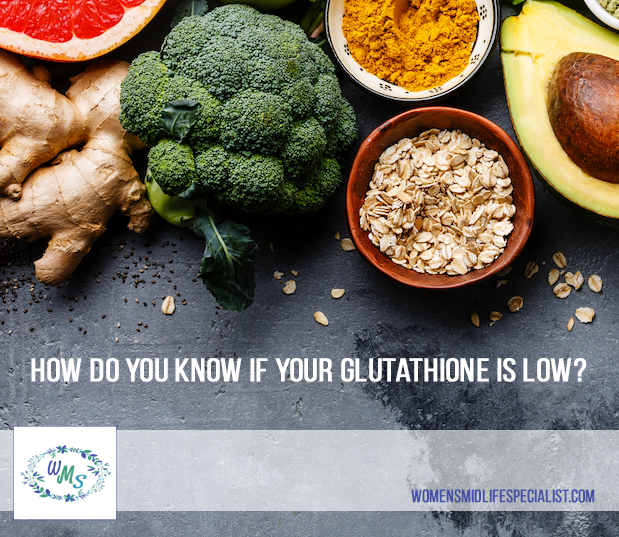How Do You Know if Your Glutathione is Low?

Glutathione is the most important antioxidant in the entire body because it protects our DNA from damage and plays a key role in our detoxification system. And our body knows how important Glutathione is too!

It never ceases to amaze us how incredibly brilliant and well planned our bodies are. With Glutathione being the key protective antioxidant, our amazing bodies produce it in every single cell from the top of our heads to the tips of our toes. It protects us against damage from dietary and environmental toxins as well as eliminating free radicals from our normal everyday metabolic processes. It is most concentrated in our liver and kidneys (our detoxification organs), our spleen (a blood cleansing organ that also plays a large role in our immune system), and our pancreas (a critical organ responsible for insulin and digestive enzyme production). Glutathione is also highly concentrated in our eyes!
Your blood levels of glutathione can be tested through both standard labs such as Quest Labs and Lab Corp, and generally through your local testing facilities. You can even order your own lab for a blood Glutathione level by purchasing it through Life Extension, and taking the lab slip they provide to Lab Corp. The results are sent to you personally with normal reference ranges which make it simple to determine if you are low, or if you lie within the normal range of expected Glutathione levels. This blood test allows you to clearly see where you stand. And through Life Extension, the test costs about $175.00.
But I have a better suggestion for you that is easier and one that comes from personal experience.
Between 2005 and 2006, WMS tested Glutathione levels in over 140 patients. All between the ages of 40 and 90, both men and women. It was quite interesting how the levels were highly correlated to a person’s lifestyle and stress levels.
Within the entire group of 140 patients. Those enjoying higher Glutathione levels were generally retired, less stressed and busy, and had committed to enjoying taking care of themselves. Most of these “top ranking” patients were in their late 60’s and 80’s and had retired from work and practiced taking care of themselves. But age was actually not really a factor by itself. There were younger patients who took good care of their own needs and had healthy Glutathione levels as well.

Younger patients who were in the middle of their careers, still working tirelessly and spending less time on themselves had generally lower Glutathione levels. Those with higher stress levels, smoked and / or drank moderate amounts of alcohol had lower levels of Glutathione as well. Diets also played a factor but correlated with other aspects of their lives. Those who took better care of themselves generally had more healthful diets verses those who were so busy, even their food preparation was limited.Glutathione is consumed by our cells quite quickly during stress, illness, and any time there is a need to reduce free radicals. That is what Glutathione is for, so therefore it makes sense that the levels will be lower when there is a great need for it.
People who consider themselves to be in good health may not necessarily be glutathione deficient but may still have declining glutathione levels. The main reason for that is age first of all, because glutathione production in cells declines naturally at an average rate of 10% per decade after age 20. Secondly, on a daily basis we all are exposed to environmental pollution, exhaust fumes, smoke, viruses and do not always eat nutritious homemade meals with recommended 7-9 servings of organic vegetables and fruit a day.
Such a lifestyle eventually leads to a certain degree of glutathione deficiency.
The symptoms may include:
- headaches
- dizziness
- weakness/lack of energy
- brain “fog”
- joint pain
- rashes
- dry skin
- sleep disorders
- depression
- frequent colds
- onset of a more serious health condition
Healthy people may not notice instantaneous results when boosting glutathione levels. However, they will notice improvement in energy levels, mind clarity, improved sleep and mood, and will see fewer colds. Those who do power workouts several times a week will see faster recovery times, reduced muscle soreness and improved athletic performance.

So, Glutathione supplementation, Designs for Health Liposomal Glutathione, is a critical piece of a supplement regimen. If this is a time of life, where there will be long stretches of extensive work projects, periods of poor sleep, times you don't eat my best, stressors flaring, responsibilities you can't avoid or even want to avoid, as well as unexpected sadness and loss this may be a good time to include Glutathione in your life.
Purchase Here
https://drkarenleggett.ehealthpro.com/


Leave a comment